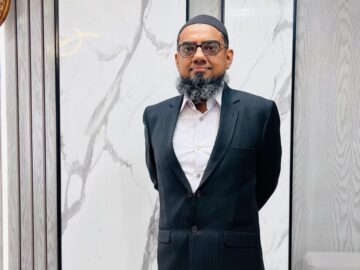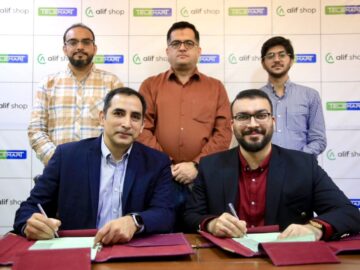
Day one of the Middle East Sports Innovation Summit 2021 kickstarted on 12th July 2021 with opening remarks from the Chief Growth Officer at Verve Management, Rohan Sharma, and was followed by a welcoming note by the CEO of Indian Rugby Football Union (IRFU) – India, Mr. Nasser Hussain.
Dr. Mezna Almarzooqi from King Saud University gave an insightful presentation on how Sports and Physical Activity play an important role in the Development of Public Health in the Middle East. She stated that lack of physical activity can lead to chronic diseases and in severe cases, even death. Dr. Mezna Almarzooqi quoted “Sport is an enabler to sustainable development”.
Mr. John Clark moderated a panel discussion that involved esteemed speakers like Mr. Mark Jan Kar from Coca-Cola Arena, Mr. Sander van Stiphout from Johan Cruijff Arena, and Mr. Igor Cavaco from Maracana Sports Complex. Mr. Mark Jan Kar kicked off this panel discussion by discussing that the broadband capabilities of a stadium are an essential element for a successful event. Mr. Sander van Stiphout said that he has been working in this industry for more than 25 years, since the era of no internet and now he is a part of teams building 5G stadiums because he believes that flexibility is the key to progress in this industry. Mr. Igor spoke about the role of Virtual Reality and how it can be integrated with the modern 5G stadiums.
Mr. Daniel Thompson, Managing Director of Quick Board gave a presentation on how pro teams are optimizing training and rehab. He spoke about how 200,000 ACL Injuries occur annually and how this injury is not just physical but also mental. He introduced how Quick Board is trying to solve this issue for all the athletes by providing visual-motor training which gives real-time feedback and is an engaging experience for the user. He explained that the traditional rehab only works on the body, whereas the Quick Board also works on the brain and neurological aspect which results in a faster and permanent recovery. The unique selling point of Quick Board is that it gives you data before the injury and also after the injury also suggesting when to return back on the field after an injury.
Another panel discussion took place which was moderated by Ms. Farah, PR & Marketing, Asia Rugby, and Jordan Rugby which involved esteemed speakers like Mr. Diamil Faye from Saudi Arabian Olympic Committee, Mr. Daniel Barriga from Laliga, Mr. Nasser Hussain from Indian Rugby Football Union, Mr. Shaji Prabhakaran from Football Delhi and Ms. Kimberly Spies from World Boxing Council Middle East.
Mr. Daniel kicked off this panel discussion by saying that Sports is an industry in Spain. Sports provides jobs in Spain and accounts for 2% of the country’s GDP. Mr. Diamel shared his experience of the time when he was in Cambodia and he saw this beautiful initiative by the government to start community sports program after the country going through two decades of war. Mr. Nasser suggested that a lot of sports facilities in India are only used for a particular sport which is not feasible and all the sports facilities should be a multi-sports facility that is financially more viable. Mr. Shaji shared his experience of when he was working in Sri Lanka a decade ago, there was an ongoing war and in the middle of all the chaos, A sports infrastructure was built which resulted in the war coming to an end.
The final panel discussion of the day was moderated by Mr. Tom Jones, Senior Principal, Populous which involved esteemed speakers like Mr. Imad from ALPS.inc, Mr. Luke from BDP Pattern, Mr. John from Yas Marina Circuit, and Mr. Jason from Godwin Austen Johnson. Mr. Luke discussed bringing the American stadium model to English games. Mr. Jason focused more on how to utilize the space of school grounds when they are not being used. Mr. John had clear views on adapting to the current pandemic situation. He said that Yas Marina Circuit tries to maximize every single aspect of the event. Mr. Imad had similar views as Mr. Jason and Mr. Imad believed that all the stadiums have huge spaces which are left unoccupied when there are no sporting events.
Day two of the virtual conference Middle East Sports Innovation Summit 2021 opened with a session by Ms. Carolyn Campbell, CEO, Basketball Australia on how empathy and human touch will play an essential role in the post-pandemic recovery of live sports and the importance of prioritizing innovation for unlocking post-pandemic growth.
The next panel discussion was moderated by Ms. Fizza Abid, Team Manager, Pakistan Cricket Board which involved esteemed speakers like Ms. Fawzia Mohammed Faridoon from Dubai Sports Council, Ms. Soleen Hamed from Jordan Football Association, and Ms. Kimberly Spies from World Boxing Council. This panel discussion was focused on breaking the stereotypes and empowerment women in sports. All the speakers had the same valid point of how women should be treated equally in all sports. They said that currently there is a lot of inequality and biases towards women in the sporting industry. The panel insisted that all sports should accept women as equal to men and gender should not play any role in the selection process. Panelists agreed that women are breaking world records in sports and proving that this is not just a man’s game.
Mr. Christopher Lee, Director, Populous shared his expertise on turning stadiums into an all-encompassing entertainment experience that is financially viable and retrofitting existing sports infrastructure into smart venues. He has a vision that a single stadium can serve all the purposes of entertainment to the fans in one place so the fans do not need to leave the stadium. He explained how turning old stadiums into a new and better modern venue will increase the experience of the fans and also be financially beneficial for the stadium.
Mr. Duane Kale, Vice President of International Paralympic Committee – New Zealand shared his knowledge and expertise on how we should be investing in sports infrastructure for players of determination to bridge the performance gap. He also spoke about empowering people of determination by providing suitable technology for competing and training. Mr. Duane stated that all the infrastructures should be user-friendly for players of determination so they don’t have to feel different when they are competing in any sport.
Ms. Farah Al Huneidi, PR & Marketing Director of Asia Rugby & Jordan Rugby spoke about the positive impact of the pandemic on the Digital Transformation in the Sports Industry and why Digital Transformation should be undertaken. Ms. Farah pointed out that the pandemic affected the sporting industry massively. However, looking at the bright side, it encouraged digitization and integration of technology in sports, which led to a lot of modern development which was crucial. She encouraged everyone to undertake this digital transformation which will help in the future projects and developments. Digitization will drastically improve the user experience with minimum hassle and maximum efficiency.










